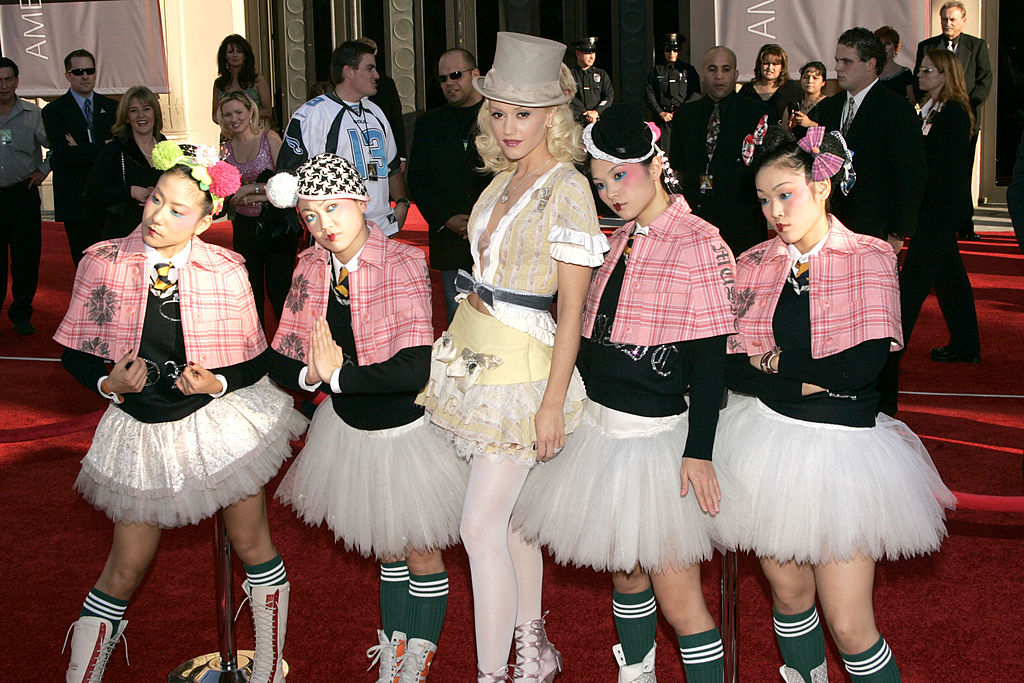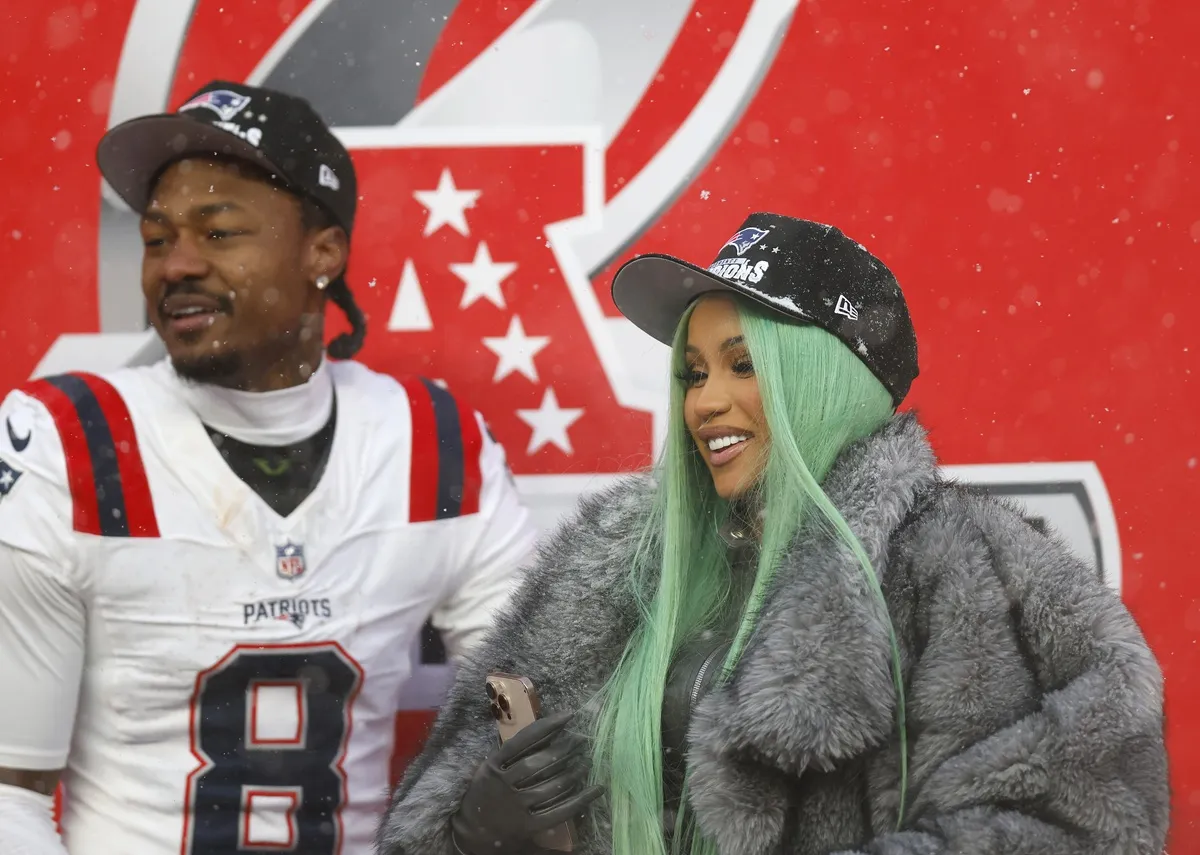Gwen Stefani Addresses Cultural Appropriation Accusations over Harajuku Girls
Gwen Stefani has gone through many styles in her fashion and music throughout the years. A lot of which were borrowed from other cultures. She is still evolving as she releases new music and is now coaching on The Voice.
This year is the 15th anniversary of her album where she used Harajuku Girls as her backup dancers. Find out what she has to say about the accusations of it being cultural appropriation and more.
Gwen Stefani released ‘Love. Angel. Music. Baby.’ with the Harajuku Girls

Stefani released the album, “Love. Angel. Music. Baby.” in 2004. She worked with four backup dancers called the Harajuku Girls and the title of the album is their stage names.
The album has stayed with the singer over the years. That’s because she has a clothing line named after it called “L.A.M.B.” She also created an animated show called Kuu Kuu Harajuku. It eventually debuted on Nickelodeon in 2016.
It lasted three seasons, but there were conversations about it being cultural appropriation.
Different eras of her career have been called out for cultural appropriation
Years later the conversation of cultural appropriation has been more public and common. That has led to some not looking fondly on her use of the Harajuku Girls and other parts of Stefani’s career.
One person tweeted, “Gwen Stefani wore a bindi from the *start* so let’s not pretend her cultural appropriation stuff snuck up on us.” Another person tweeted, “I’m still rattled at that tweet which said “cause of SJWs we don’t get cultural appropriation bops like this anymore” and the video attached was a Gwen Stefani song.”
There have also been articles calling her out. One called “Before We Embrace Gwen Stefani’s Comeback, She Owes Us An Apology” was published by Time in 2014. Another was “Sadly, Gwen Stefani Has Been Problematic This Whole Time” published by Vice in 2018.
The conversations about Stefani and cultural appropriation have been around on Twitter for some time. Now she is responding to it and reflecting on her past.
She thinks it was a bow down to culture
The singer talked about that specific time in her career. It’s the 15th anniversary of “Love. Angel. Music. Baby.” and she thinks people understood what she was doing.
“When it first came out, I think people understood that it was an artistic and literal bow down to a culture that I was a superfan of,” she told Billboard. “This album was like a dream. I went in thinking I’m going to make something that could never be possible — me doing a dance record — come true.”
She continued, “It was almost like a joke, because I thought that could never happen to me. So it was my fantasy. When the Harajuku Girls came out, it was like, you’re not even real, you’re a dream. It wasn’t like, “You’re not real because you’re Asian.” Are you kidding me? That would be horrifying!”
The singer also talked about the origin of her fascination with the culture. “I wanted to write a song that talked about my love for Harajuku,” she explained. “When you’re from Anaheim and never traveled outside of your city until you’re 21 years old, it was really crazy to go to Japan. My dad went there a lot because he worked with Yamaha motorcycles, so I had a fascination from a young age.”
It sounds like the singer doesn’t feel any differently about using the Harajuku Girls. She still has brands based on that era of her career today.


